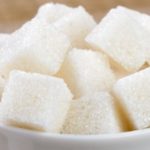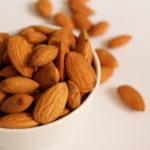High fructose corn syrup and obesity – is there a relationship?
Obesity has escalated into a worldwide problem. Many causes including dietary products have been proposed. Excessive caloric intake has been related to fat-rich foods, increased amount of fast-food consumption, and diets high in sugars such as sucrose and high fructose corn syrup (HFCS) as a source of fructose. A lot of research is going on to find out the exact cause which is still unclear. One of the research areas also involves the relation between the intake of high fructose corn syrup and the development of obesity. Over the last few decades, the consumption of corn syrup has increased by more than 1000 percent. It is far in excess of any other changing pattern in food intake.
High fructose corn syrup
HFCS is commonly used as a sweetener in the foods and beverages industry because fructose is sweeter than sucrose (sugar). If the sweetness of sucrose was set at 100, fructose had a sweetness of 173. It means that less amount of fructose is needed for the product to have the same sweetness. Because of that HFCS has frequently used a substitute for sucrose in carbonated beverages, baked foods, canned fruits, jams, and dairy products as it makes these products less caloric. The daily calorie consumption in foods containing HFCS has been found to be in the range of 100 to 300 kcal. Increased consumption of this high-calorie substance has been associated with an increased prevalence of obesity. Fructose is metabolized in the liver with the production of fats. Hence dietary fructose may contribute to increased energy intake and weight gain. The high consumption of fructose-sweetened beverages has an important role to play in the epidemic of obesity.
Metabolic effects of fructose
A large amount of ingested fructose is a source of fat synthesis in the liver. It is also proven that the intake of fructose does not lead to the release of insulin. Insulin reduces blood glucose by increasing its metabolism and is also known to control food intake. Insulin increases leptin release which is known to inhibit hunger. A low insulin concentration after ingestion of fructose is associated with a lower leptin level in comparison to the ingestion of glucose. Since leptin inhibits food intake, the lower leptin concentration associated with fructose intake tends to increase calorie consumption and, in consequence, to accumulation of body fat.
High fructose corn syrup and obesity
A clinical study was conducted to compare weight gain in two groups – one group was fed on solid carbohydrates and the other group was given HFCS-containing beverages. Both groups were given an equal daily dose of calories (450 kcal per day). It was found that people who consumed HFCS-containing beverages gained more weight than those who had solid carbohydrates. A positive correlation between high fructose corn syrup and obesity was established. In another study, one group was offered high-calorie sweet beverages and the other group received diet beverages. The weight gain in the first group was significantly more. So it can be said that the rapid increase in the intake of calorically sweetened soft drinks could be a contributing factor to the epidemic of weight gain. Although it is useful to know that HFCS intake accounts for more than 40% of the total intake of calorie-rich sweeteners.
Multiple environmental factors like sedentary lifestyle, eating at fast-food restaurants, and changes in the types of food are responsible for excessive weight gain. An increased intake of soft drinks and other sweetened beverages containing high fructose corn syrup are important contributors to the current epidemic of obesity.




























